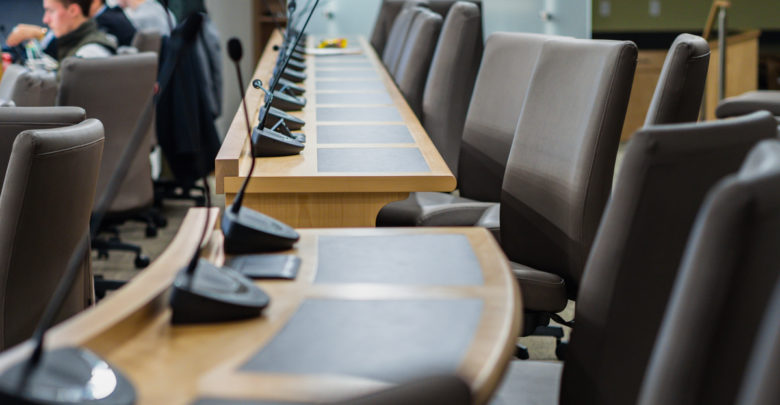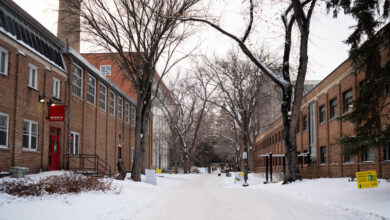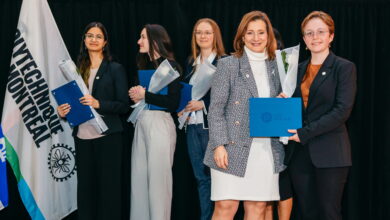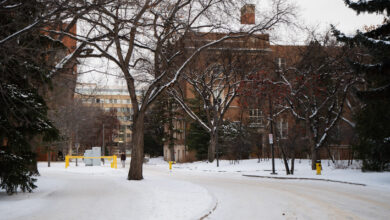Notes from Council: Council criticizes consultation process on proposed exceptional tuition increases
Steven Dew, U of A provost and vice-president (academic), described the timeline of consultations as “not ideal.”
 Helen Zhang
Helen Zhang“Notes from Council” is The Gateway’s ongoing series of recaps of noteworthy items from Students’ Council meetings.
U of A’s provost and vice-president (academic) presented on the exceptional proposed tuition increases to the Students’ Union
The meeting began with Steven Dew, provost and vice-president (academic), presenting to the Students’ Council on the exceptional proposed tuition increases. If implemented, these proposed tuition increases would affect students entering the U of A in 2022, with tuition increases ranging between 17 and 104 per cent for 12 programs.
Dew started off by quoting the McKinnon Report. This document from May 2019, also known as the Blue Ribbon Panel on Alberta’s Finances, details the findings of an independent panel of experts that were appointed to review Alberta’s finances and economy.
Specifically, Dew brought forward Recommendation 8 from this report, which recommends the Government of Alberta “work with post-secondary stakeholders to achieve a revenue mix comparable to that in British Columbia and Ontario, including less reliance on government grants, more funding from tuition and alternative revenue sources, and more entrepreneurial approaches to how programs are financed and delivered.”
After presenting Students’ Council with the McKinnon Report, Dew segued to discussing the mechanism of exceptional tuition increases.
Under current regulations, the average tuition paid by students cannot increase by more than 7 per cent a year. However, the Advanced Education Minister can approve exceptional tuition increases above this level, provided that the minister believes these increases will improve the quality of the programs.
In addition to the minster’s approval, post-secondary intuitions must consult affected student organizations about the proposed increases. At the meeting, Dew described the consultation process as an “area of concern to the Students’ Union” as conveyed to him by Rowan Ley, Students’ Union president.
Within his presentation, Dew outlined the forms of consultation that were conducted within the faculties proposing exceptional tuition increases. This consultation took place before the exceptional proposed tuition increases were presented to the Minister a few weeks ago.
According to Dew, consultation with students took the form of:
- Townhalls
- Meetings with student faculty associations
- Meetings with small groups of students and individual students
- Google forms and surveys
- Websites and email communications.
Dew’s presentation claimed these “diverse approaches” intended to “maximize opportunities to engage with students.” He also criticized the consultation that took place, describing the timeline as “not ideal.”
Students’ Union president, executives, and councilors criticize consultation process
Ley questioned why the university cannot extend the consultation process to ensure it is done properly.
“We do feel that the consultation process overlapped with [the] student leadership transition… was extremely inadequate,” Ley said. “If the minister is willing to consider applications in 2021 I can’t see any reason that he would not be willing to consider applications in 2022… [so] why can’t the university wait a year and do consultation and development properly and submit this proposal to the minister in June 2022?”
Dew agreed with Ley that the consultation process before submitting the proposal to the Minister was brief, claiming the “timelines were not of [their] choosing.” The provost and vice-president (academic) claimed the consultation is ongoing, even if the Minister approves the proposal.
“If the minister approves [the decision] it is still up to the board which will not make its decision until March,” Dew said. “Please don’t feel in any way feel like [the] consultation [process] is done.”
Ley responded by pointing out Alberta’s Tuition and Fees Regulation states consultation with the Students’ Council must be done before the proposal is completed.
Rowan Morris, an education councillor, pointed out the tendency to define this consultation process as meaningful and questioned who it meant to be meaningful for.
“Considering the university will be experiencing financial gain as a result of these tuition increases is this criteria [which defines the consultation process as meaningful] geared towards this consultation being meaningful for students or for the university?” they asked.
In response, Dew claimed the consultation is not meant to be meaningful to only one particular group.
“Meaningful consultation means ideas have been shared, exchanged, and heard,” Dew responded. “[It] is not about one person’s interest or another, it’s about making sure that dialogue is happening.”
Talia Dixon, Students’ Union vice-president (student life), echoed previous critiques of the consultation process. She pointed out the lack of Students’ Council involvement in the mentioned consultation.
“I think it’s pretty evident at this point that the student leaders here at Students’ Council… are not happy with the consultation that has been done for this proposal,” Dixon said. “It is very clear that the consultation that has been done was not done correctly… so how are you going to improve it moving forward?”
“Talia, I hear you when you say you do not feel that consultation has been effective,” Dew responded. “I disagree when you say consultation has not occurred. Our agreed upon consultation process with student leaders is that the primary vehicle for that is the Tuition and Budget Advisory Committee (TBAC), it is not the Students’ Union Students’ Council.”
“Your representatives on TBAC are your frontline team… if you wish going forward to have a different mechanism [of consultation, we are] happy to have that conversation.”
Update: On November 22, at 1:46 p.m., the article was updated to reflect the current identity and pronouns of those involved.




